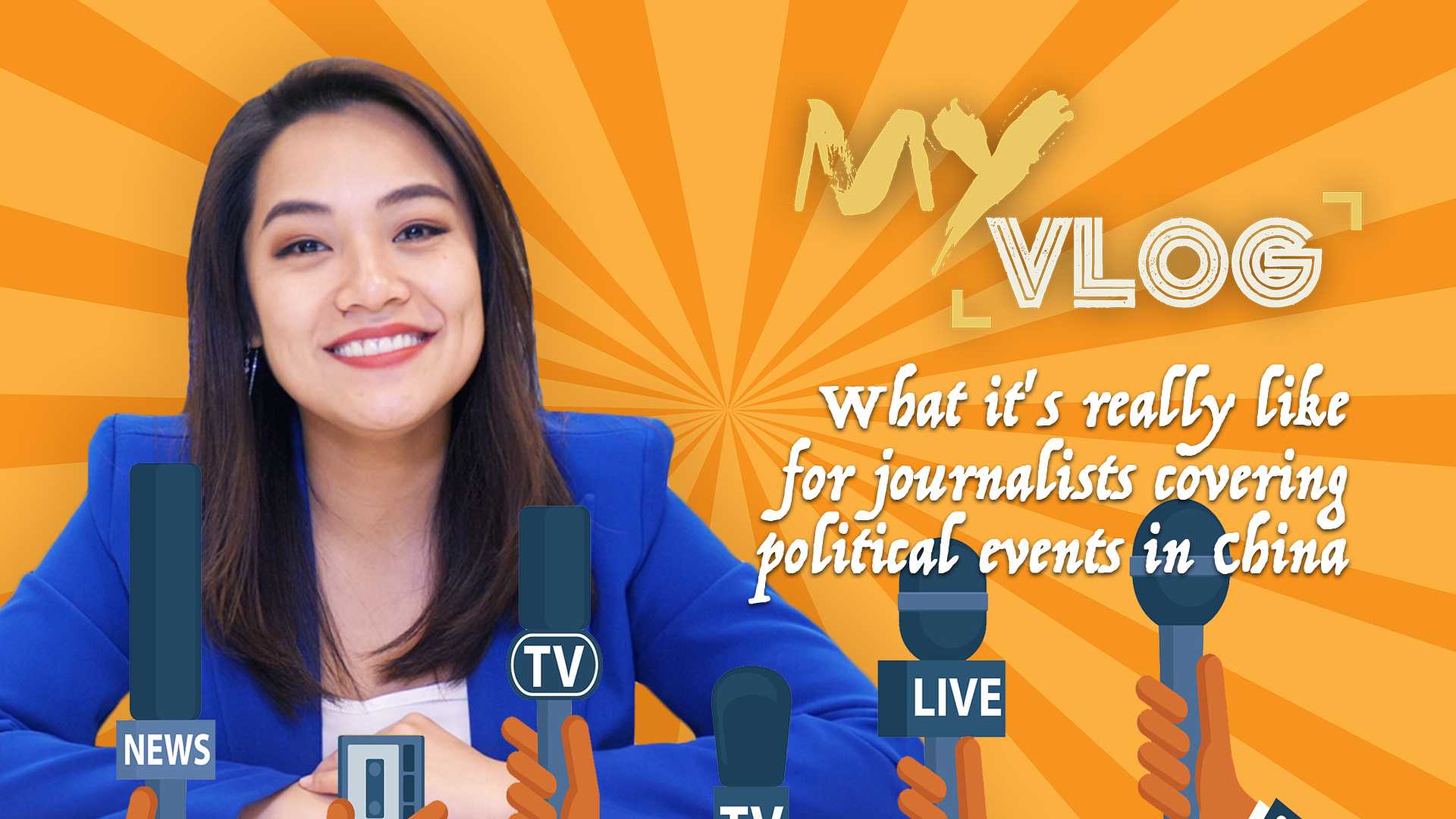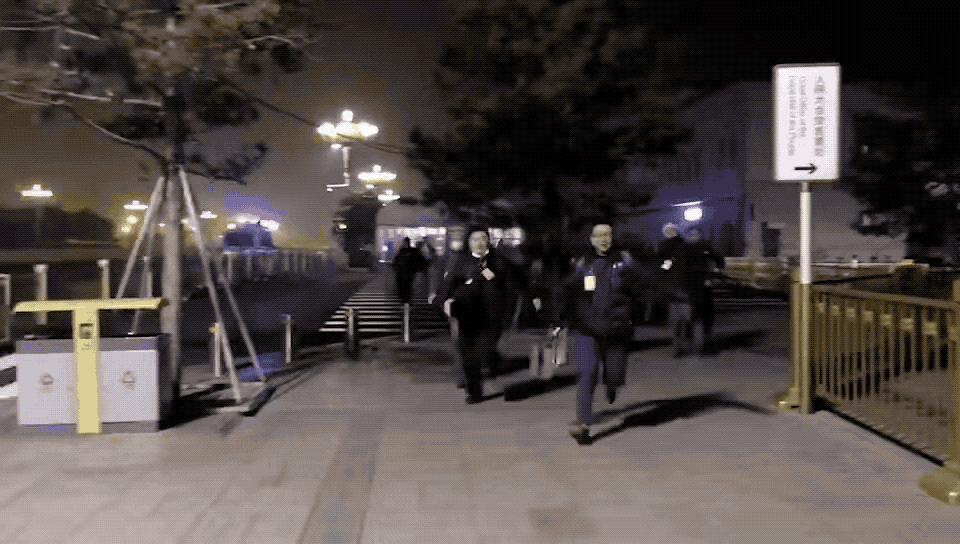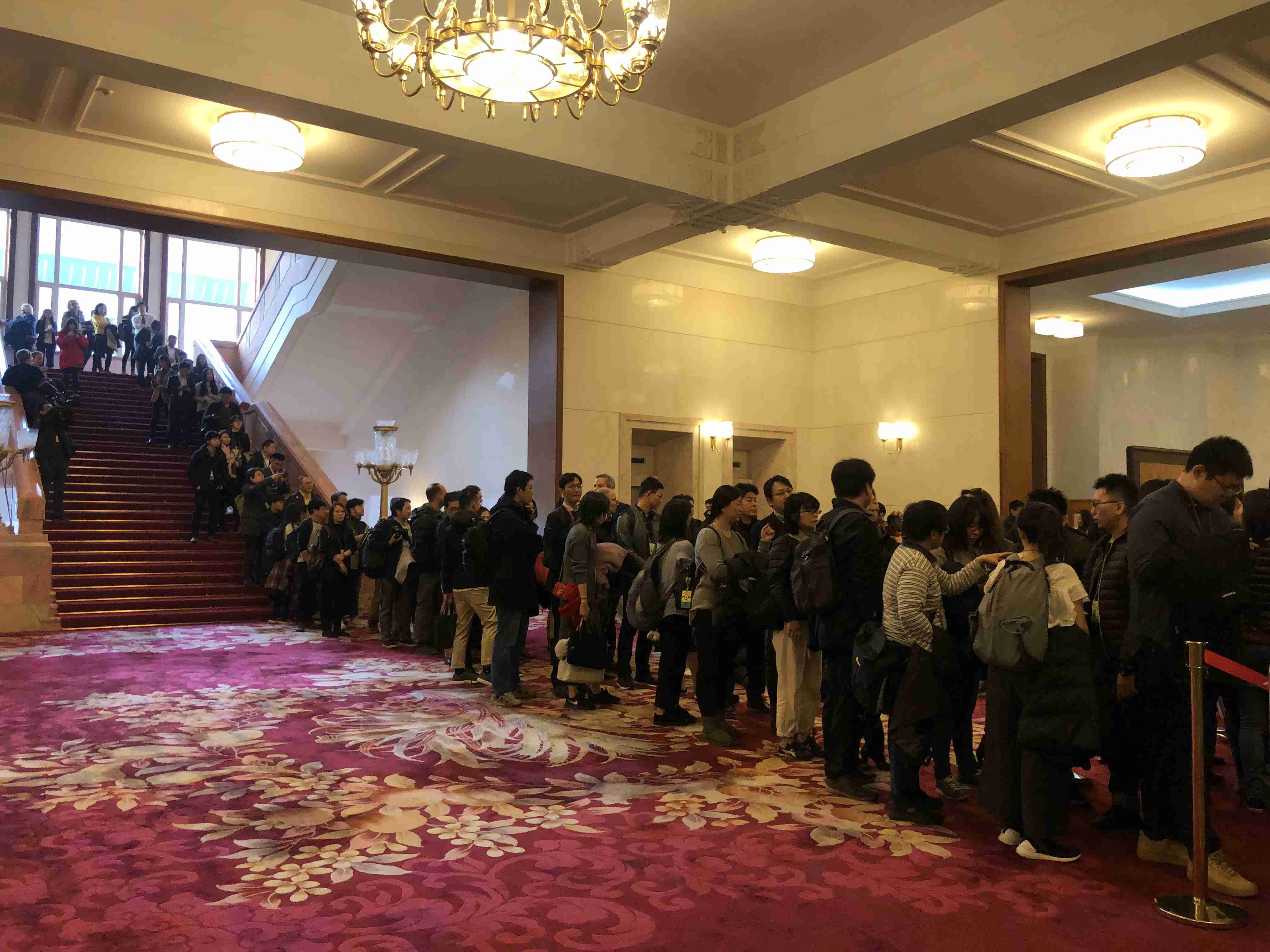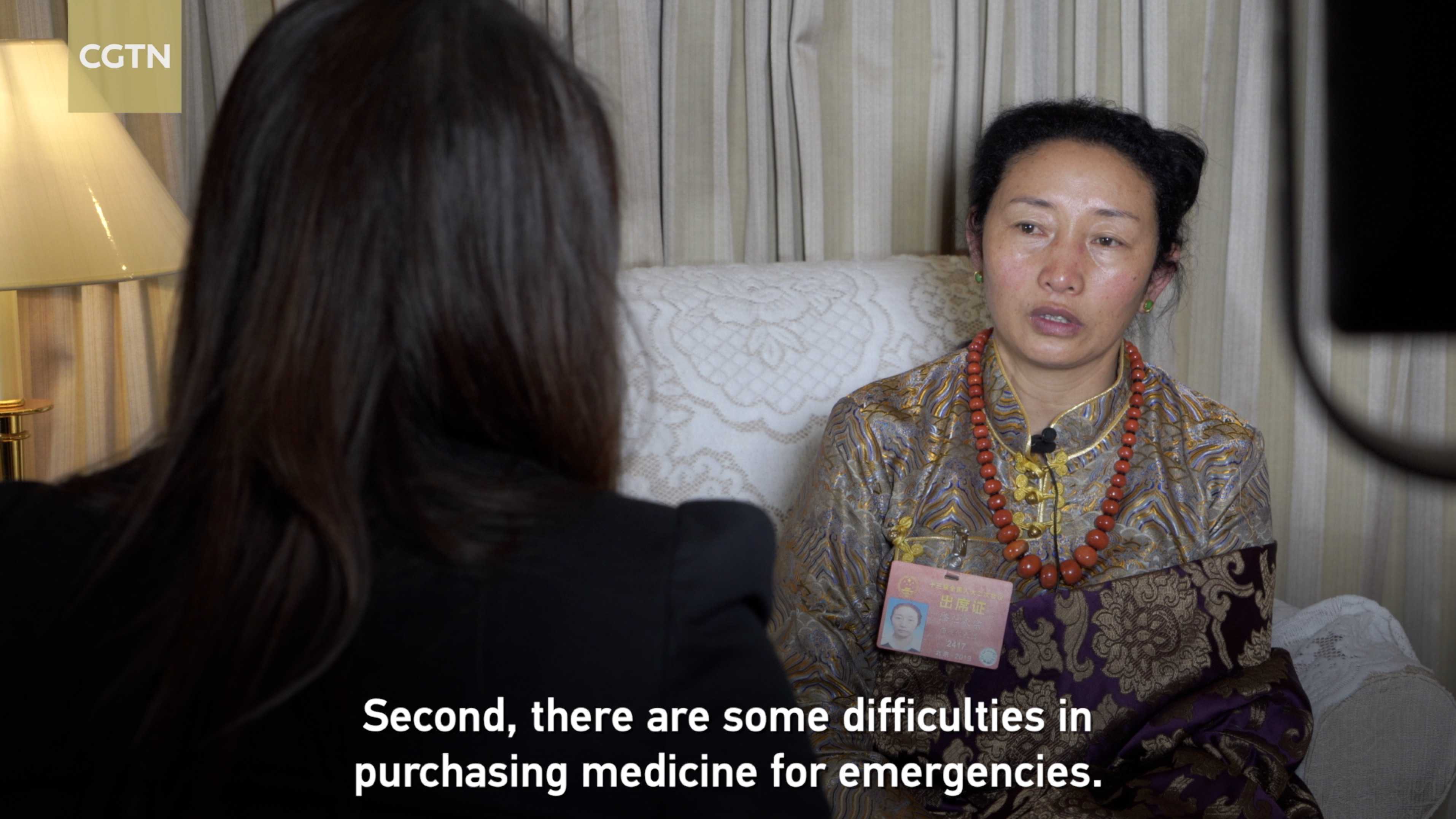
Domestic
22:45, 14-Mar-2019
My Vlog: What it's really like for journalists covering political events in China
Updated
08:57, 15-Mar-2019
By Li Jingjing
08:00

The past two weeks have been crazy for the journalists based in China because it was the Two Sessions, one of the most important political events in the country.
I was among the many journalists covering the Two Sessions, which is the annual plenary sessions of China's top legislative, the National People's Congress (NPC), and China's top advisory body, the Chinese People's Political Consultative Conference (CPPCC).
This is one of China's most important political events during which time, journalists from around China and the rest of the world gather in Beijing.
Many people think reporters who cover big political events have it made. They dress up in smart suits with perfect hair and makeup, and they meet high-ranking officials in fancy buildings. But in fact, that could not be further from the truth.
So, I recorded my moments from the first day of the Two Sessions onward to give you a backstage look at this important political event and show you what it really means for journalists.
Tremendous efforts
First, it means tons of physical work.
Namely, waking up early in the morning and carrying huge equipment.

Footage courtesy of huanqiu.com
Footage courtesy of huanqiu.com
It's not a marathon; it's reporters and cameramen sprinting to the Great Hall of the People, trying to find the best spot. Crazy, huh?
For the men and women who need to be on camera, that means waking up even earlier for hair and makeup.
Second, it means multitasking and scheduling your work within a very limited time. Did I get enough footage? Did I get enough information on air? Did I get the interview as expected? These are questions always on my mind.
So if it’s that tiring, why do reporters work so hard? Because this is the time when people's voices get heard. This is the time when deputies and members from every corner of China sort out problems and brainstorm solutions. This is the time for making new laws to make a difference for the country.

Reporters lining up to get a copy of the government work report. /CGTN Photo
Reporters lining up to get a copy of the government work report. /CGTN Photo
To find out what proposals deputies are bringing this year, I spoke to a few deputies from different provinces in China.
A bridge of communication
Tsering Yangzom, an NPC deputy from the Tibet Autonomous Region, shared with me her proposals. As a doctor, she spared no effort to improve Tibet's medical facilities.

input words
input words
"There are many operations that could not be done in Tibet many years ago. We needed to transfer them (the patients) to other provinces in China. But this gradually changed after doctors from other provinces came to help Tibet," she said, recounting the dramatic changes in Tibet.
She said now some 338 diseases could be treated in Tibet and 1,990 diseases could be treated in its cities, including surgeries for hydrocephalus and intracranial tumors.
But that doesn't mean the medical conditions in Tibet are perfect.
"I think it’s necessary to put more effort into cultivating Tibet's medical talents. Second, there are some difficulties in purchasing medicine for emergencies," she said. And these are also her proposals for the Two Sessions. The long process before the final approval for purchasing medicines made it very hard to get medicines on time for patients in emergency.
By bringing these problems to the Two Sessions, she hopes more efforts could be made in further improving Tibet's healthcare.

Interviewing a deputy at the Great Hall of the People. /CGTN Photo
Interviewing a deputy at the Great Hall of the People. /CGTN Photo
She is one of the many deputies bringing the problems that exist in society, in people's lives, in all corners of China.
And that is what's most important for us as reporters – to serve as a bridge for communication.
Making sure deputies' voices get heard. Making sure the voices of the people they represent get heard.
Asking government leaders the questions people want answers to.
That's what makes our effort worthwhile.
Reported, video edited and written by Li Jingjing
Filmed by Zhou Jinxi
Cover photo designed by Du Chenxin
Copy edited by Josh McNally

SITEMAP
Copyright © 2018 CGTN. Beijing ICP prepared NO.16065310-3
Copyright © 2018 CGTN. Beijing ICP prepared NO.16065310-3